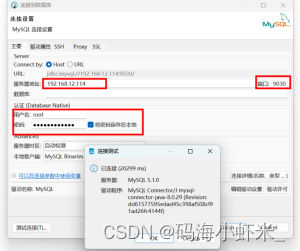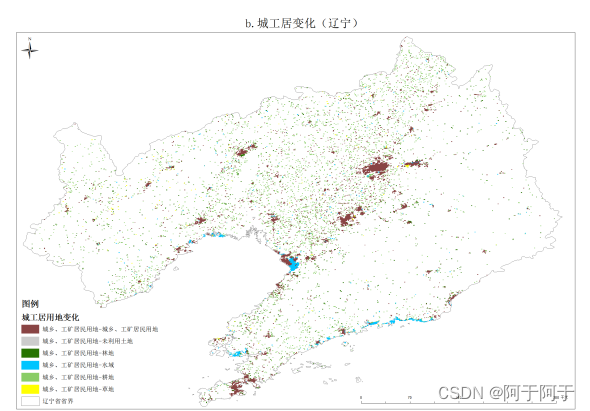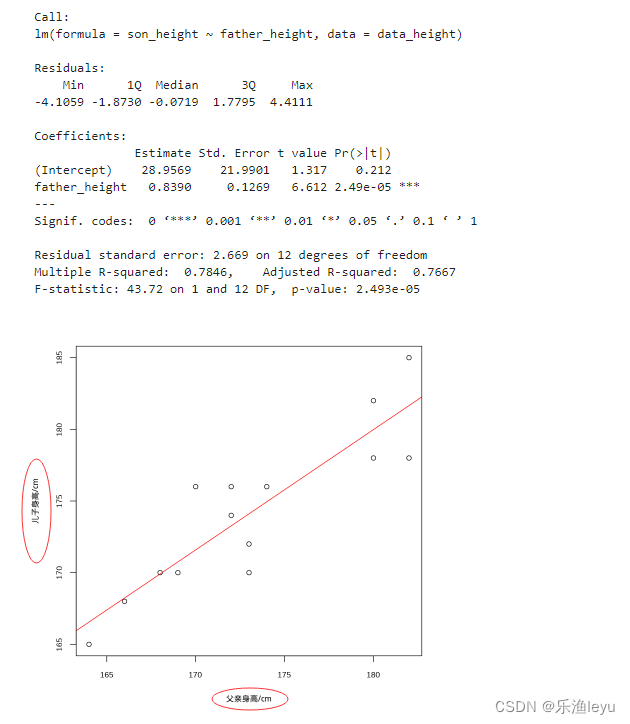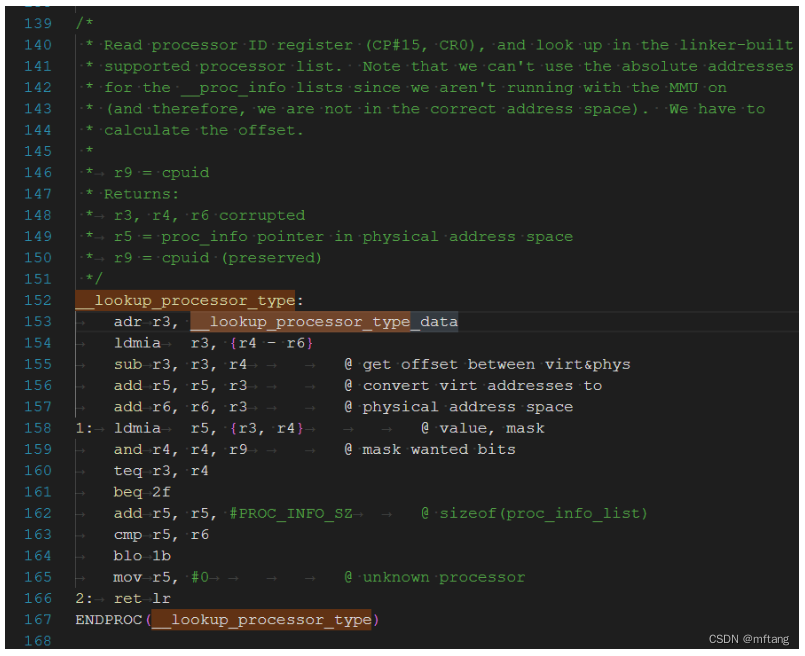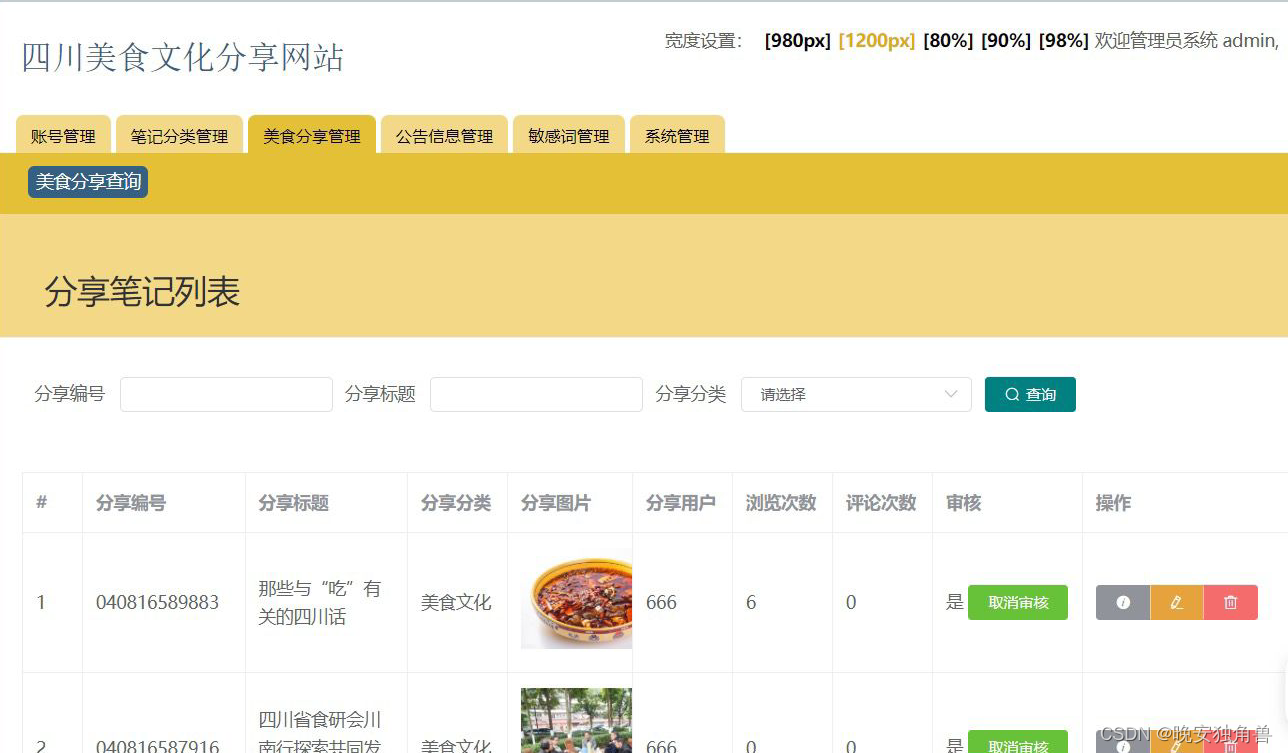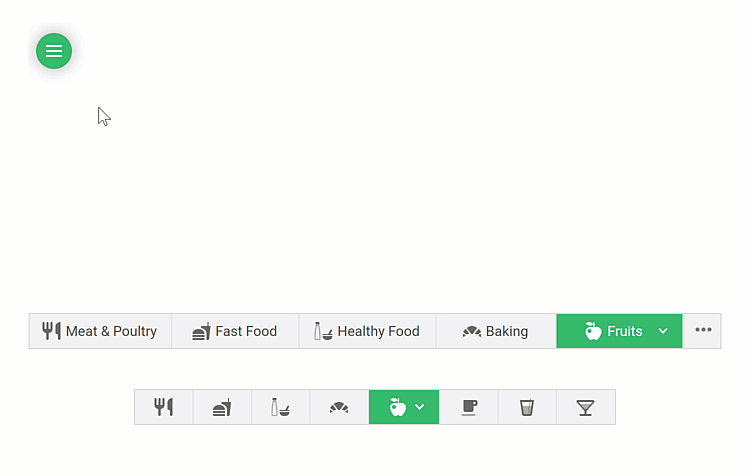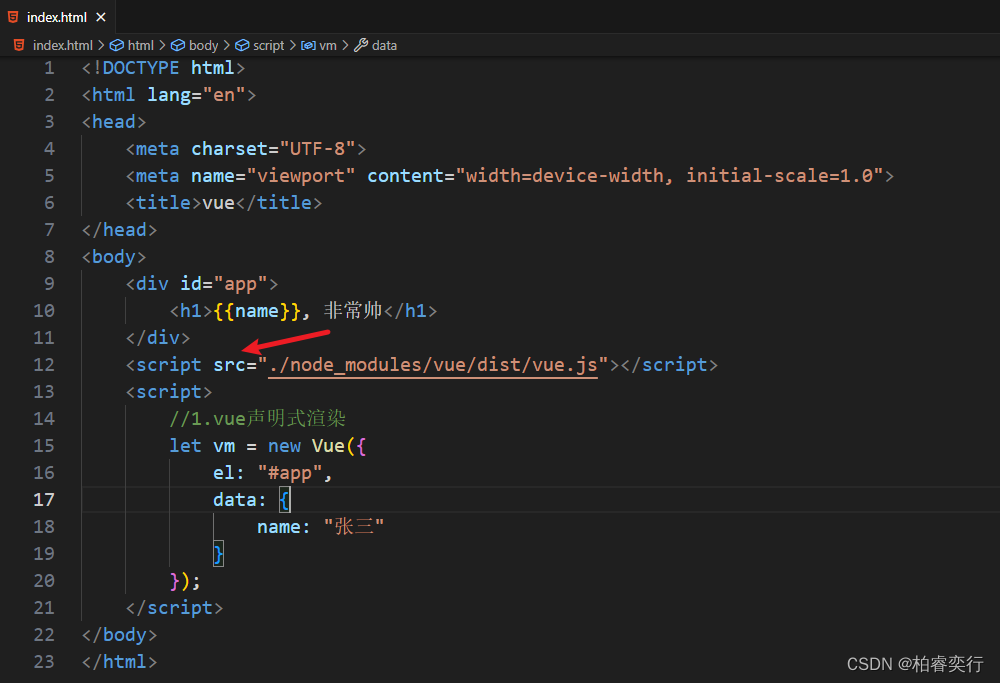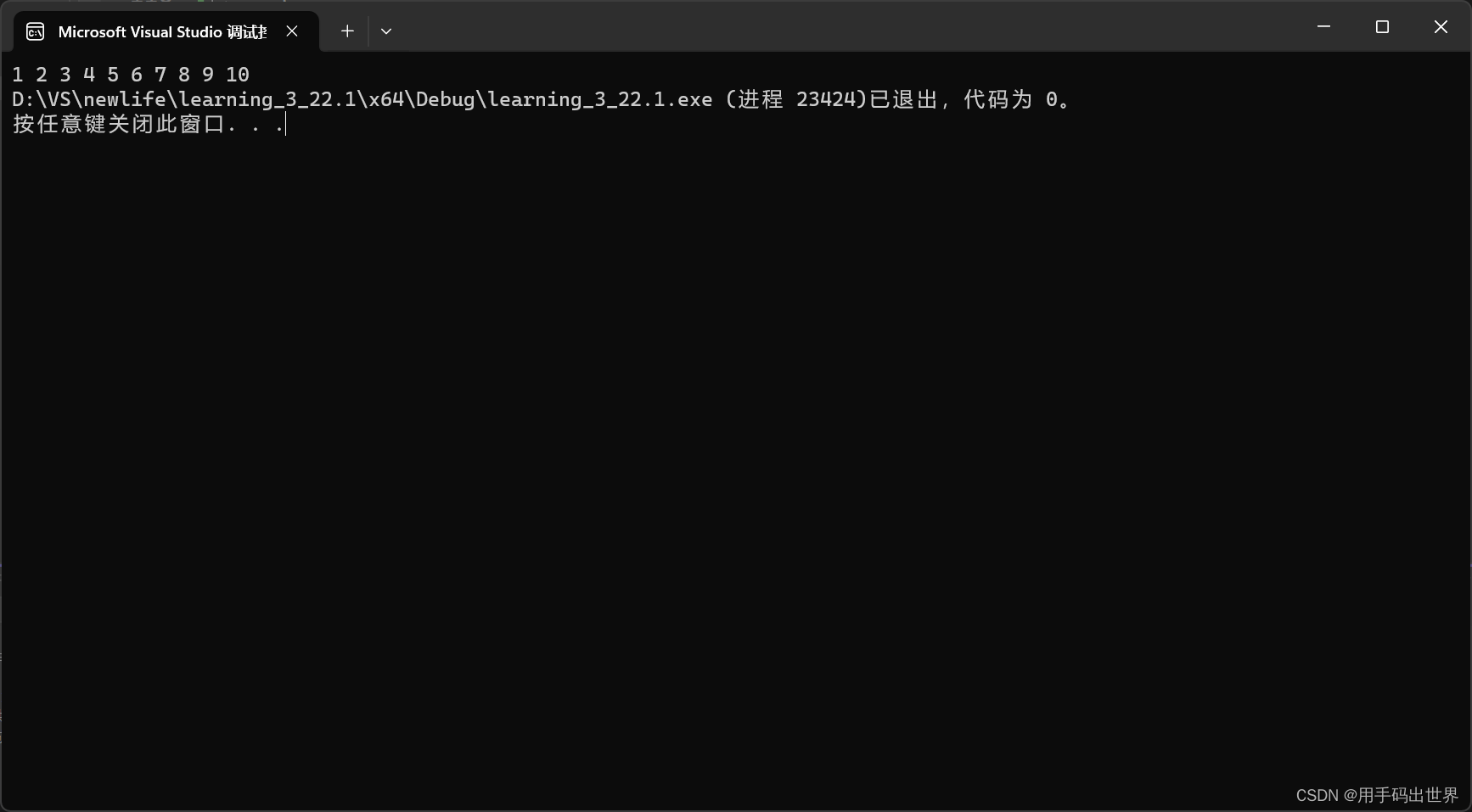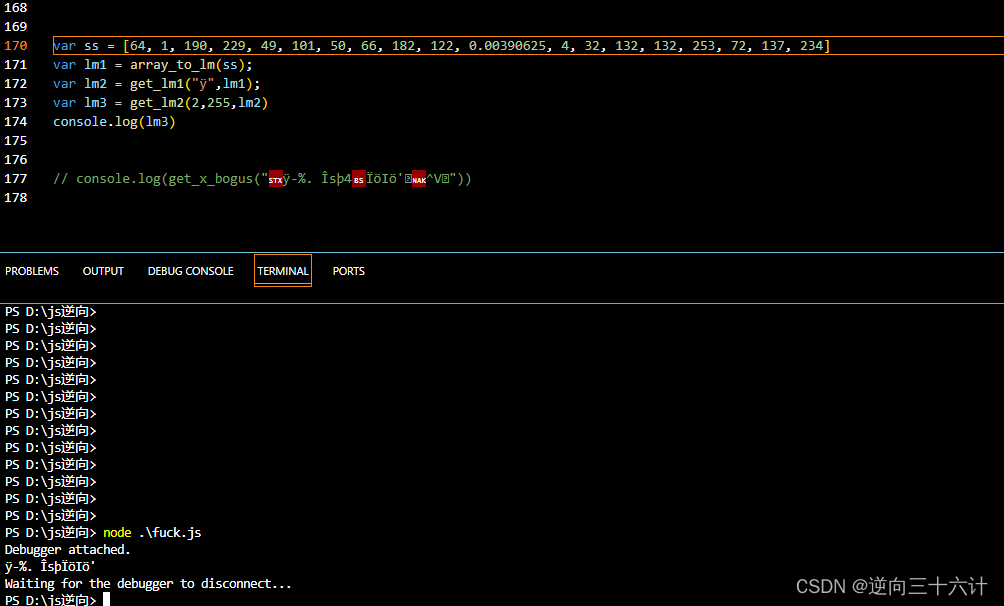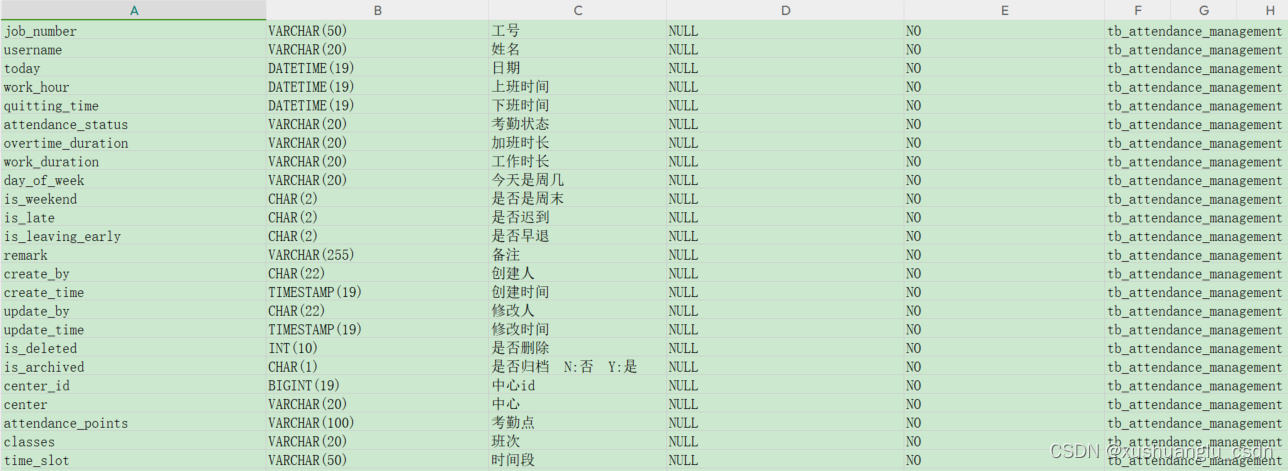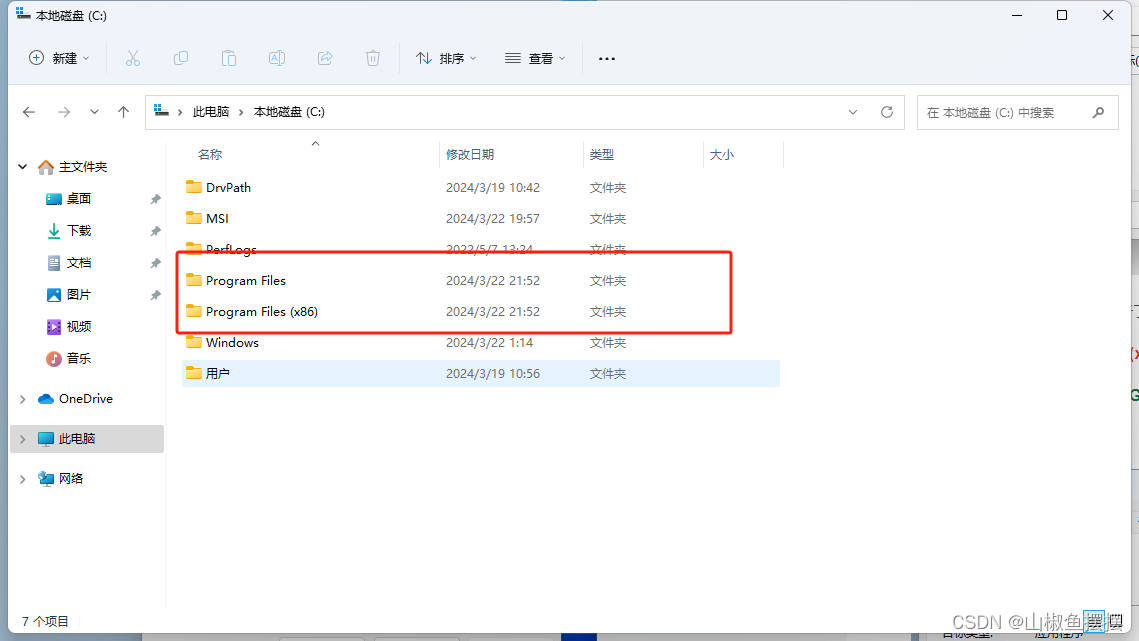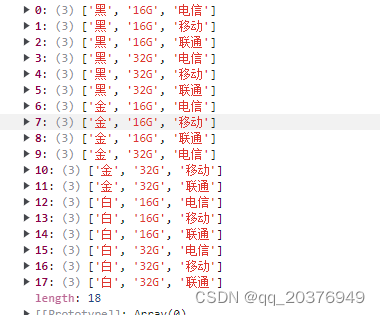教程:Hyperf
一 修改器和访问器
根据教程,可设置相关函数,如set属性名Attribute()、get属性名Attribute(),设置和获取属性。这在thinkphp中也常见。
修改器:set属性名Attribute();访问器:get属性名Attribute()。
1.1 原理
模型的父类Hyperf\Database\Model\Model,定义__set()、_get()、__isset()、__unset()函数。
设置属性调用__set(),获取属性调用_get()。
__set()调用set属性名Attribute(),和格式化数据。先通过set属性名Attribute()获取值,再判断是否为日期格式化日期数据。若设置字段类型,会根据设定的字段类型匹配对应的类,返回对应类。会判断是否为json数据返回json格式字符换。若调用的对应字符串含有“->”,则将该对应类对象格式化为json字符串返回。
1.2 测试
#App\Controller\Test
public function testmodifier() {
$result = Article::query()->find(2)->toArray();
var_dump($result);
$article = Article::firstOrCreate(
['title' => 'test4'],
['user_id' => 2]
);
$result = Article::query()->where(['title' => '&test4'])->first()->toArray();
var_dump($result);
}#App1\Model\Article
class Article extends Model implements CacheableInterface {
use Cacheable;
use SoftDeletes;
/**
* The table associated with the model.
*
* @var string
*/
protected $table = 'articles';
/**
* The attributes that are mass assignable.
*
* @var array
*/
protected $fillable = ['title', 'user_id']; //允许批量赋值
/**
* The attributes that should be cast to native types.
*
* @var array
*/
protected $casts = ['id' => 'integer', 'created_at' => 'datetime', 'updated_at' => 'datetime'];
public function setTitleAttribute($value) {
$this->attributes['title'] = "&" . $value;
}
public function getTitleAttribute($value) {
return "标题:" . $value;
}
}测试结果
array(7) {
["id"]=>
int(2)
["user_id"]=>
int(1)
["title"]=>
string(14) "标题:test2"
["created_at"]=>
string(19) "2024-01-13 10:06:04"
["updated_at"]=>
string(19) "2024-01-13 10:06:06"
["deleted_at"]=>
NULL
["pv_num"]=>
int(0)
}
array(7) {
["id"]=>
int(10)
["user_id"]=>
int(2)
["title"]=>
string(15) "标题:&test4"
["created_at"]=>
string(19) "2024-03-19 08:07:24"
["updated_at"]=>
string(19) "2024-03-19 08:07:24"
["deleted_at"]=>
NULL
["pv_num"]=>
int(0)
}
数据保存使用Hyperf\Database\Model\Builder::firstOrCreate()。firstOrNew()仅在对象中增加数据,未保存进数据库,这是和firstOrCreate()的区别。
过程中创建Hyperf\Database\Model\Model类对象是__construct(),会调用Model::fill()。Model::fill()使用Model::isFillable()调用Model::fillable属性,结果为true,才能设置属性,否则报错。
因为在Article::setTitleAttribute()对传入的属性增加数据。根据测试代码,查询的使用也应该加上“&”。
也是因为使用Builder::firstOrCreate()和Article::setTitleAttribute()修改传入属性,设置查询数据时不会查询到相应数据,因为查询值有差异。
tp中也遇到过相似情况。解决方法,对查询条件中数据也进行数据的换装,保证修改方式和保存之前的数据方式一样。
1.3 源码
#App1\Model\Article
use Hyperf\DbConnection\Model\Model;
class Article extends Model implements CacheableInterface {
use Cacheable;
use SoftDeletes;
}
#Hyperf\DbConnection\Model\Model
use Hyperf\Database\Model\Model as BaseModel;
class Model extends BaseModel
{
use HasContainer;
use HasRepository;
}#Hyperf\Database\Model\Model
abstract class Model implements ArrayAccess, Arrayable, Jsonable, JsonSerializable,
CompressInterface {
use Concerns\HasAttributes;
use Concerns\HasEvents;
use Concerns\HasGlobalScopes;
use Concerns\HasRelationships;
use Concerns\HasTimestamps;
use Concerns\HidesAttributes;
use Concerns\GuardsAttributes;
/**
* Dynamically retrieve attributes on the model.
*
* @param string $key
*/
public function __get($key) {
return $this->getAttribute($key);
}
/**
* Dynamically set attributes on the model.
*
* @param string $key
* @param mixed $value
*/
public function __set($key, $value) {
$this->setAttribute($key, $value);
}
/**
* Determine if an attribute or relation exists on the model.
*
* @param string $key
* @return bool
*/
public function __isset($key) {
return $this->offsetExists($key);
}
/**
* Unset an attribute on the model.
*
* @param string $key
*/
public function __unset($key) {
$this->offsetUnset($key);
}
}# Hyperf\Database\Model\Concerns\HasAttributes
/**
* Set a given attribute on the model.
*
* @param string $key
* @param mixed $value
*/
public function setAttribute($key, $value)
{
// First we will check for the presence of a mutator for the set operation
// which simply lets the developers tweak the attribute as it is set on
// the model, such as "json_encoding" an listing of data for storage.
if ($this->hasSetMutator($key)) {
return $this->setMutatedAttributeValue($key, $value);
}
// If an attribute is listed as a "date", we'll convert it from a DateTime
// instance into a form proper for storage on the database tables using
// the connection grammar's date format. We will auto set the values.
if ($value && $this->isDateAttribute($key)) {
$value = $this->fromDateTime($value);
}
if ($this->isClassCastable($key)) {
$this->setClassCastableAttribute($key, $value);
return $this;
}
if ($this->isJsonCastable($key) && !is_null($value)) {
$value = $this->castAttributeAsJson($key, $value);
}
// If this attribute contains a JSON ->, we'll set the proper value in the
// attribute's underlying array. This takes care of properly nesting an
// attribute in the array's value in the case of deeply nested items.
if (Str::contains($key, '->')) {
return $this->fillJsonAttribute($key, $value);
}
$this->attributes[$key] = $value;
return $this;
}
/**
* Set the value of an attribute using its mutator.
*
* @param string $key
* @param mixed $value
*/
protected function setMutatedAttributeValue($key, $value)
{
return $this->{'set' . Str::studly($key) . 'Attribute'}($value);
}
/**
* Convert a DateTime to a storable string.
*
* @param mixed $value
* @return null|string
*/
public function fromDateTime($value)
{
return empty($value) ? $value : $this->asDateTime($value)->format(
$this->getDateFormat()
);
}
/**
* Get the format for database stored dates.
*
* @return string
*/
public function getDateFormat()
{
return $this->dateFormat ?: $this->getConnection()->getQueryGrammar()->getDateFormat();
}
/**
* Set the value of a class castable attribute.
*
* @param string $key
* @param mixed $value
*/
protected function setClassCastableAttribute($key, $value)
{
$caster = $this->resolveCasterClass($key);
if (is_null($value)) {
$this->attributes = array_merge($this->attributes, array_map(
function () {
},
$this->normalizeCastClassResponse($key, $caster->set(
$this,
$key,
$this->{$key},
$this->attributes
))
));
} else {
$this->attributes = array_merge(
$this->attributes,
$this->normalizeCastClassResponse($key, $caster->set(
$this,
$key,
$value,
$this->attributes
))
);
}
if ($caster instanceof CastsInboundAttributes || !is_object($value)) {
unset($this->classCastCache[$key]);
} else {
$this->classCastCache[$key] = $value;
}
}
/**
* Cast the given attribute to JSON.
*
* @param string $key
* @param mixed $value
* @return string
*/
protected function castAttributeAsJson($key, $value)
{
$value = $this->asJson($value);
if ($value === false) {
throw JsonEncodingException::forAttribute(
$this,
$key,
json_last_error_msg()
);
}
return $value;
}
/**
* Set a given JSON attribute on the model.
*
* @param string $key
* @param mixed $value
* @return $this
*/
public function fillJsonAttribute($key, $value)
{
[$key, $path] = explode('->', $key, 2);
$this->attributes[$key] = $this->asJson($this->getArrayAttributeWithValue(
$path,
$key,
$value
));
return $this;
}二 日期转化及时间格式化
模型会将 created_at 和 updated_at 字段转换为 Carbon\Carbon 实例,它继承了 PHP 原生的 DateTime 类并提供了各种有用的方法。可以通过设置模型的 $dates 属性来添加其他日期属性。
2.1 原理
调用Model::_get()、Model::_set()时,会判断字段类型,为日期则转换为Carbon\Carbon类对象。可以设置日期格式。
$date为日期类型字段,$dateFormat为日期格式字符串,都在Hyperf\Database\Model\Concerns\HasAttributes中设置,也是由其转换数据类型。
HasAttributes::castAttribute()处理各种字段类型,HasAttributes::asDate()执行日期类型转换,HasAttributes::getDateFormat()获取日期格式。
日期类型默认包括created_at 、updated_at。日期默认格式"Y-m-d H:i:s"。
2.2 测试
#App1\Model\Article
protected $dateFormat = 'Y-m-d H:i';
public function setTitleAttribute($value) {
$this->attributes['title'] = $value;
}
public function getTitleAttribute($value) {
return $value;
}#App\Controller\TestController
public function testmodifier() {
$article = Article::firstOrCreate(
['title' => 'test4'],
['user_id' => 2]
);
var_dump($article->toArray());
}测试结果
array(7) {
["id"]=>
int(11)
["user_id"]=>
int(2)
["title"]=>
string(5) "test4"
["created_at"]=>
string(16) "2024-03-22 09:04"
["updated_at"]=>
string(16) "2024-03-22 09:04"
["deleted_at"]=>
NULL
["pv_num"]=>
int(0)
} 
测试可见 数据库中时间格式还是h:i:s,仅获取的时候是h:i格式。
Model::CREATED_AT、Model::UPDATED_AT使用Carbon::now()获取时间,并没有使用$dateFormat属性。
2.3 源码
#Hyperf\Database\Model\Model
public function __get($key) {
return $this->getAttribute($key);
}
public function __set($key, $value) {
$this->setAttribute($key, $value);
}
/**
* 新增时使用
*
* @param \Hyperf\Database\Model\Builder $query
* @return bool
*/
protected function performInsert(Builder $query) {
if ($event = $this->fireModelEvent('creating')) {
if ($event instanceof StoppableEventInterface && $event->isPropagationStopped()) {
return false;
}
}
// First we'll need to create a fresh query instance and touch the creation and
// update timestamps on this model, which are maintained by us for developer
// convenience. After, we will just continue saving these model instances.
if ($this->usesTimestamps()) {
$this->updateTimestamps();
}
// If the model has an incrementing key, we can use the "insertGetId" method on
// the query builder, which will give us back the final inserted ID for this
// table from the database. Not all tables have to be incrementing though.
$attributes = $this->getAttributes();
if ($this->getIncrementing()) {
$this->insertAndSetId($query, $attributes);
}
// If the table isn't incrementing we'll simply insert these attributes as they
// are. These attribute arrays must contain an "id" column previously placed
// there by the developer as the manually determined key for these models.
else {
if (empty($attributes)) {
return true;
}
$query->insert($attributes);
}
// We will go ahead and set the exists property to true, so that it is set when
// the created event is fired, just in case the developer tries to update it
// during the event. This will allow them to do so and run an update here.
$this->exists = true;
$this->wasRecentlyCreated = true;
$this->fireModelEvent('created');
return true;
}
/**
* 修改时使用
*
* @param \Hyperf\Database\Model\Builder $query
* @return bool
*/
protected function performUpdate(Builder $query) {
// If the updating event returns false, we will cancel the update operation so
// developers can hook Validation systems into their models and cancel this
// operation if the model does not pass validation. Otherwise, we update.
if ($event = $this->fireModelEvent('updating')) {
if ($event instanceof StoppableEventInterface && $event->isPropagationStopped()) {
return false;
}
}
// First we need to create a fresh query instance and touch the creation and
// update timestamp on the model which are maintained by us for developer
// convenience. Then we will just continue saving the model instances.
if ($this->usesTimestamps()) {
$this->updateTimestamps();
}
// Once we have run the update operation, we will fire the "updated" event for
// this model instance. This will allow developers to hook into these after
// models are updated, giving them a chance to do any special processing.
$dirty = $this->getDirty();
if (count($dirty) > 0) {
$this->setKeysForSaveQuery($query)->update($dirty);
$this->syncChanges();
$this->fireModelEvent('updated');
}
return true;
}
public function save(array $options = []): bool {
$this->mergeAttributesFromClassCasts();
$query = $this->newModelQuery();
// If the "saving" event returns false we'll bail out of the save and return
// false, indicating that the save failed. This provides a chance for any
// listeners to cancel save operations if validations fail or whatever.
if ($saving = $this->fireModelEvent('saving')) {
if ($saving instanceof StoppableEventInterface && $saving->isPropagationStopped()) {
return false;
}
}
// If the model already exists in the database we can just update our record
// that is already in this database using the current IDs in this "where"
// clause to only update this model. Otherwise, we'll just insert them.
if ($this->exists) {
$saved = $this->isDirty() ? $this->performUpdate($query) : true;
} else {
// If the model is brand new, we'll insert it into our database and set the
// ID attribute on the model to the value of the newly inserted row's ID
// which is typically an auto-increment value managed by the database.
$saved = $this->performInsert($query);
if (!$this->getConnectionName() && $connection = $query->getConnection()) {
$this->setConnection($connection->getName());
}
}
// If the model is successfully saved, we need to do a few more things once
// that is done. We will call the "saved" method here to run any actions
// we need to happen after a model gets successfully saved right here.
if ($saved) {
$this->finishSave($options);
}
return $saved;
}#Hyperf\Database\Model\Concerns\HasAttributes
/**
* Set a given attribute on the model.
*
* @param string $key
* @param mixed $value
*/
public function setAttribute($key, $value)
{
// First we will check for the presence of a mutator for the set operation
// which simply lets the developers tweak the attribute as it is set on
// the model, such as "json_encoding" an listing of data for storage.
if ($this->hasSetMutator($key)) {
return $this->setMutatedAttributeValue($key, $value);
}
// If an attribute is listed as a "date", we'll convert it from a DateTime
// instance into a form proper for storage on the database tables using
// the connection grammar's date format. We will auto set the values.
if ($value && $this->isDateAttribute($key)) {
$value = $this->fromDateTime($value);
}
if ($this->isClassCastable($key)) {
$this->setClassCastableAttribute($key, $value);
return $this;
}
if ($this->isJsonCastable($key) && !is_null($value)) {
$value = $this->castAttributeAsJson($key, $value);
}
// If this attribute contains a JSON ->, we'll set the proper value in the
// attribute's underlying array. This takes care of properly nesting an
// attribute in the array's value in the case of deeply nested items.
if (Str::contains($key, '->')) {
return $this->fillJsonAttribute($key, $value);
}
$this->attributes[$key] = $value;
return $this;
}
public function fromDateTime($value)
{
return empty($value) ? $value : $this->asDateTime($value)->format(
$this->getDateFormat()
);
}
/**
* Get an attribute from the model.
*
* @param string $key
*/
public function getAttribute($key)
{
if (!$key) {
return;
}
// If the attribute exists in the attribute array or has a "get" mutator we will
// get the attribute's value. Otherwise, we will proceed as if the developers
// are asking for a relationship's value. This covers both types of values.
if (array_key_exists($key, $this->getAttributes())
|| $this->hasGetMutator($key)
|| $this->isClassCastable($key)) {
return $this->getAttributeValue($key);
}
// Here we will determine if the model base class itself contains this given key
// since we don't want to treat any of those methods as relationships because
// they are all intended as helper methods and none of these are relations.
if (method_exists(self::class, $key)) {
return;
}
return $this->getRelationValue($key);
}
public function getAttributeValue($key)
{
return $this->transformModelValue($key, $this->getAttributeFromArray($key));
}
protected function transformModelValue($key, $value)
{
// If the attribute has a get mutator, we will call that then return what
// it returns as the value, which is useful for transforming values on
// retrieval from the model to a form that is more useful for usage.
if ($this->hasGetMutator($key)) {
return $this->mutateAttribute($key, $value);
}
// If the attribute exists within the cast array, we will convert it to
// an appropriate native PHP type dependent upon the associated value
// given with the key in the pair. Dayle made this comment line up.
if ($this->hasCast($key)) {
return $this->castAttribute($key, $value);
}
// If the attribute is listed as a date, we will convert it to a DateTime
// instance on retrieval, which makes it quite convenient to work with
// date fields without having to create a mutator for each property.
if ($value !== null
&& \in_array($key, $this->getDates(), false)) {
return $this->asDateTime($value);
}
return $value;
}
protected function castAttribute($key, $value)
{
$castType = $this->getCastType($key);
if (is_null($value) && in_array($castType, static::$primitiveCastTypes)) {
return $value;
}
switch ($castType) {
case 'int':
case 'integer':
return (int) $value;
case 'real':
case 'float':
case 'double':
return $this->fromFloat($value);
case 'decimal':
return $this->asDecimal($value, explode(':', $this->getCasts()[$key], 2)[1]);
case 'string':
return (string) $value;
case 'bool':
case 'boolean':
return (bool) $value;
case 'object':
return $this->fromJson($value, true);
case 'array':
case 'json':
return $this->fromJson($value);
case 'collection':
return new BaseCollection($this->fromJson($value));
case 'date':
return $this->asDate($value);
case 'datetime':
case 'custom_datetime':
return $this->asDateTime($value);
case 'timestamp':
return $this->asTimestamp($value);
}
if ($this->isClassCastable($key)) {
return $this->getClassCastableAttributeValue($key, $value);
}
return $value;
}
protected function asDate($value)
{
return $this->asDateTime($value)->startOfDay();
}
protected function asDateTime($value)
{
// If this value is already a Carbon instance, we shall just return it as is.
// This prevents us having to re-instantiate a Carbon instance when we know
// it already is one, which wouldn't be fulfilled by the DateTime check.
if ($value instanceof Carbon || $value instanceof CarbonInterface) {
return Carbon::instance($value);
}
// If the value is already a DateTime instance, we will just skip the rest of
// these checks since they will be a waste of time, and hinder performance
// when checking the field. We will just return the DateTime right away.
if ($value instanceof DateTimeInterface) {
return Carbon::parse(
$value->format('Y-m-d H:i:s.u'),
$value->getTimezone()
);
}
// If this value is an integer, we will assume it is a UNIX timestamp's value
// and format a Carbon object from this timestamp. This allows flexibility
// when defining your date fields as they might be UNIX timestamps here.
if (is_numeric($value)) {
return Carbon::createFromTimestamp($value);
}
// If the value is in simply year, month, day format, we will instantiate the
// Carbon instances from that format. Again, this provides for simple date
// fields on the database, while still supporting Carbonized conversion.
if ($this->isStandardDateFormat($value)) {
return Carbon::instance(Carbon::createFromFormat('Y-m-d', $value)->startOfDay());
}
$format = $this->getDateFormat();
// Finally, we will just assume this date is in the format used by default on
// the database connection and use that format to create the Carbon object
// that is returned back out to the developers after we convert it here.
if (Carbon::hasFormat($value, $format)) {
return Carbon::createFromFormat($format, $value);
}
return Carbon::parse($value);
}
public function getDateFormat()
{
return $this->dateFormat ?: $this->getConnection()->getQueryGrammar()->getDateFormat();
}#Hyperf\Database\Grammar
public function getDateFormat()
{
return 'Y-m-d H:i:s';
}#Hyperf\Database\Model\Concerns\HasTimestamps
protected function updateTimestamps()
{
$time = $this->freshTimestamp();
if (! is_null(static::UPDATED_AT) && ! $this->isDirty(static::UPDATED_AT)) {
$this->setUpdatedAt($time);
}
if (! $this->exists && ! is_null(static::CREATED_AT)
&& ! $this->isDirty(static::CREATED_AT)) {
$this->setCreatedAt($time);
}
}
public function setCreatedAt($value)
{
$this->{static::CREATED_AT} = $value;
return $this;
}
public function setUpdatedAt($value)
{
$this->{static::UPDATED_AT} = $value;
return $this;
}
public function freshTimestamp()
{
return Carbon::now();
}
#Carbon\Traits\Creator
public function __construct($time = null, $tz = null)
{
if ($time instanceof DateTimeInterface) {
$time = $this->constructTimezoneFromDateTime($time, $tz)->format('Y-m-d H:i:s.u');
}
if (is_numeric($time) && (!\is_string($time) || !preg_match('/^\d{1,14}$/', $time))) {
$time = static::createFromTimestampUTC($time)->format('Y-m-d\TH:i:s.uP');
}
// If the class has a test now set and we are trying to create a now()
// instance then override as required
$isNow = empty($time) || $time === 'now';
if (method_exists(static::class, 'hasTestNow') &&
method_exists(static::class, 'getTestNow') &&
static::hasTestNow() &&
($isNow || static::hasRelativeKeywords($time))
) {
static::mockConstructorParameters($time, $tz);
}
// Work-around for PHP bug https://bugs.php.net/bug.php?id=67127
if (!str_contains((string) .1, '.')) {
$locale = setlocale(LC_NUMERIC, '0'); // @codeCoverageIgnore
setlocale(LC_NUMERIC, 'C'); // @codeCoverageIgnore
}
try {
parent::__construct($time ?: 'now', static::safeCreateDateTimeZone($tz) ?: null);
} catch (Exception $exception) {
throw new InvalidFormatException($exception->getMessage(), 0, $exception);
}
$this->constructedObjectId = spl_object_hash($this);
if (isset($locale)) {
setlocale(LC_NUMERIC, $locale); // @codeCoverageIgnore
}
self::setLastErrors(parent::getLastErrors());
}
public static function now($tz = null)
{
return new static(null, $tz);
}